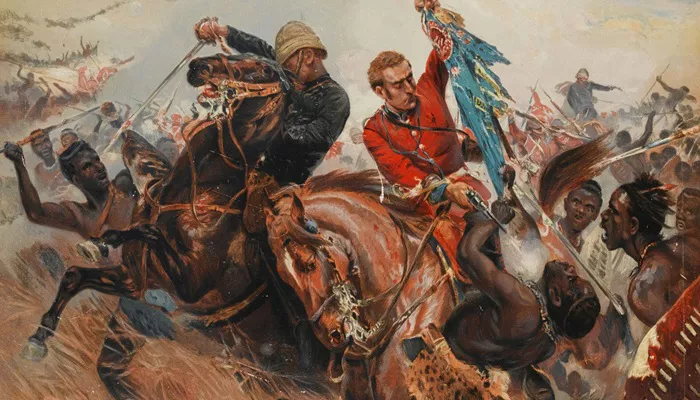What Happened on January 11 in British History?
The Anglo-Zulu War Begins (1879)
One of the most notable events in British history that occurred on January 11 is the commencement of the Anglo-Zulu War in 1879. This conflict arose from tensions between the British Empire and the Zulu Kingdom in Southern Africa. The war was primarily fueled by British colonial expansion and the desire to annex Zululand, which was rich in resources and strategically important.The war officially began when British forces invaded Zululand after a failed diplomatic effort to impose British control over the Zulu nation. The Zulu, under King Cetshwayo, were initially able to defend their territory effectively, achieving a significant victory at the Battle of Isandlwana on January 22, 1879. However, the British eventually regrouped and employed more advanced military tactics and technology, leading to their eventual victory and the annexation of Zululand later that year.The Anglo-Zulu War had profound implications for both the Zulu people and the British Empire. It marked a significant moment in the broader context of European imperialism in Africa, showcasing both the military prowess of indigenous forces and the devastating impact of colonial expansion on native populations.
The Establishment of the First Recorded Lottery (1569)
Another important event that took place on January 11 was the establishment of England’s first recorded lottery in 1569. This lottery was initiated to raise funds for public projects, including repairs to bridges and fortifications. The concept of lotteries was not new; they had been used in various forms throughout Europe for centuries. However, this marked a significant moment in English history as it formalized state-sponsored gambling as a means of generating revenue.The lottery was advertised through printed bills, which were distributed widely to inform the public about its purpose and potential rewards. Participants purchased tickets, with proceeds going towards community improvements. This initiative laid the groundwork for future lotteries in Britain and influenced similar practices worldwide.Lotteries have since evolved into a popular form of entertainment and fundraising, but they also raise ethical questions regarding gambling addiction and social equity. The establishment of this lottery is a key moment in understanding how governments can leverage public participation for collective benefit.
The Nika Riots (532) – A Broader Context
While not directly related to British history, it is essential to acknowledge that significant events occurring around January 11 can provide context for understanding historical trends. For instance, on January 11, 532, the Nika Riots erupted in Constantinople. These riots were primarily aimed at overthrowing Emperor Justinian I and were fueled by social unrest among different factions within Byzantine society.The Nika Riots serve as a reminder of how political instability can lead to widespread violence and upheaval. Such events often reverberate through history, influencing political thought and governance structures even in distant lands like Britain. The aftermath of these riots saw Justinian consolidating his power through brutal repression, which can be compared to various responses by British authorities during times of civil unrest.
The Kingsland Explosion (1917)
On January 11, 1917, an explosion occurred at a munitions factory in Kingsland, New Jersey, during World War I. Although primarily an American event, it had implications for Britain as well since munitions production was critical for supporting Allied forces during the war.The explosion resulted from unsafe practices in handling explosives and led to significant casualties and damage. Such incidents highlighted the dangers associated with wartime production efforts and prompted discussions about safety regulations within factories producing munitions for Britain’s military efforts.This event underscores the interconnectedness of wartime economies and how incidents in one country can impact allies engaged in similar conflicts.
The Sino-British Treaty (1943)
Another crucial event that took place on January 11 was the signing of a Sino-British treaty regarding extra-territorial rights in China in 1943. This treaty marked a significant shift in British foreign policy as it relinquished certain privileges that had been held since the Opium Wars.The treaty reflected changing attitudes towards colonialism and imperialism during World War II as nations re-evaluated their roles on the global stage. For Britain, this treaty indicated a willingness to adapt its imperial policies amid rising nationalist sentiments within colonized nations.This event is pivotal for understanding Britain’s post-war foreign relations strategy and its gradual transition away from traditional imperialism towards more cooperative international relationships.
Conclusion
January 11 has been a date marked by various historical events that have shaped British history and its interactions with other nations. From military conflicts like the Anglo-Zulu War to social initiatives such as the establishment of lotteries, each occurrence provides insight into broader historical trends.
These events illustrate how January 11 serves as a microcosm of larger historical themes within British history—imperialism, governance challenges, social initiatives, wartime dynamics, and evolving international relations. Each event contributes to our understanding of how past occurrences shape contemporary society and policy-making within Britain and beyond.

